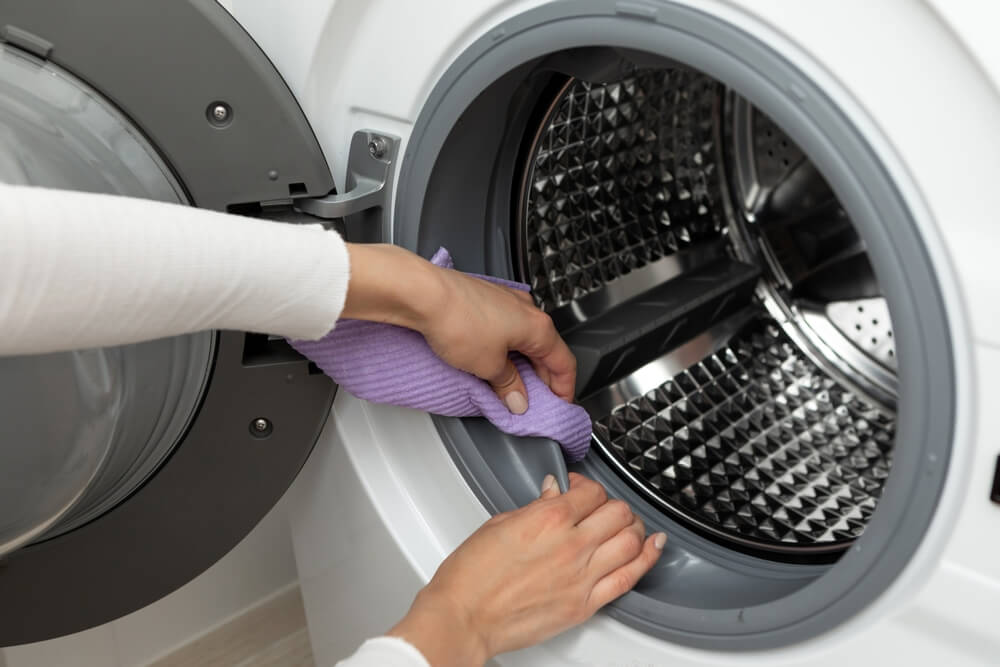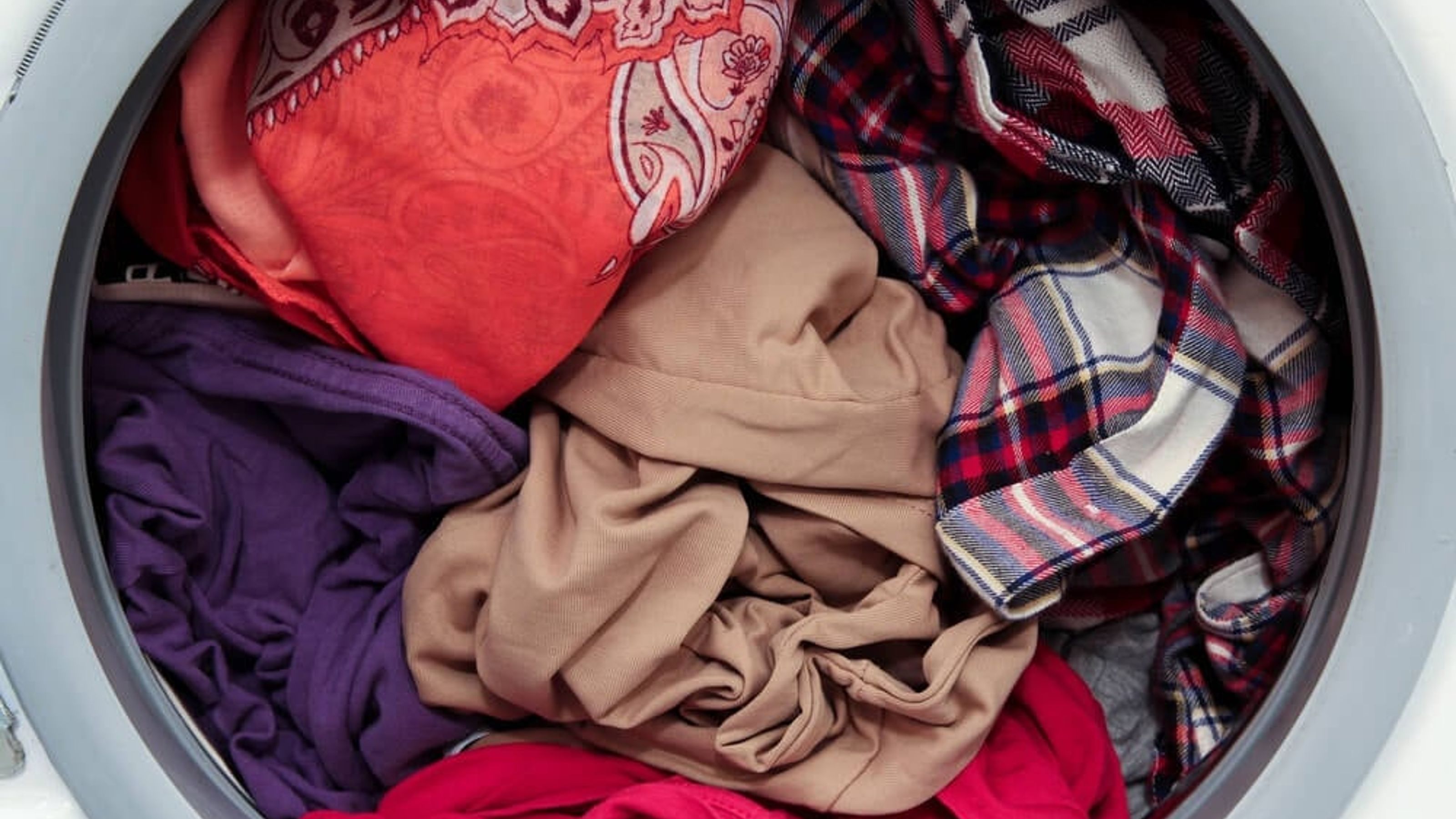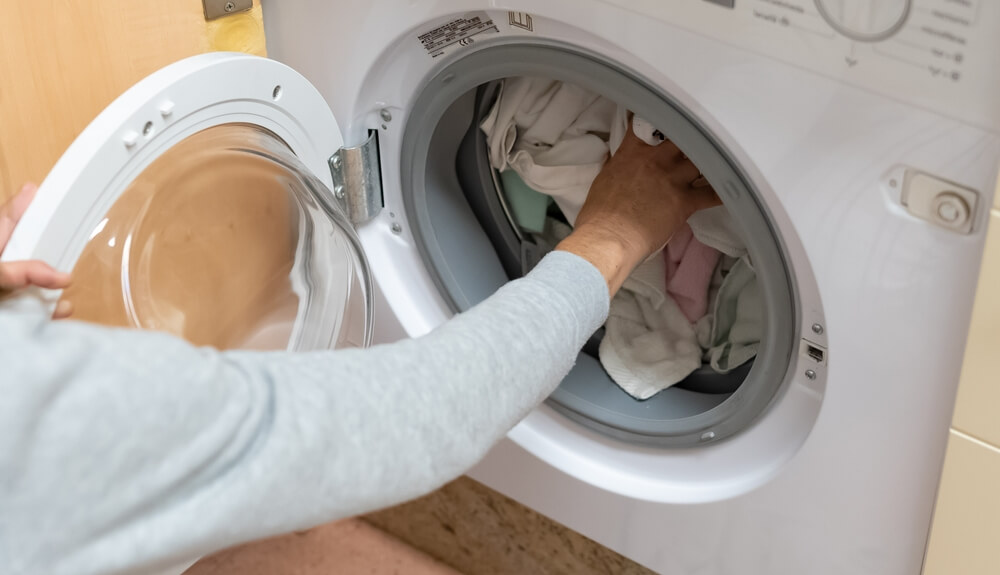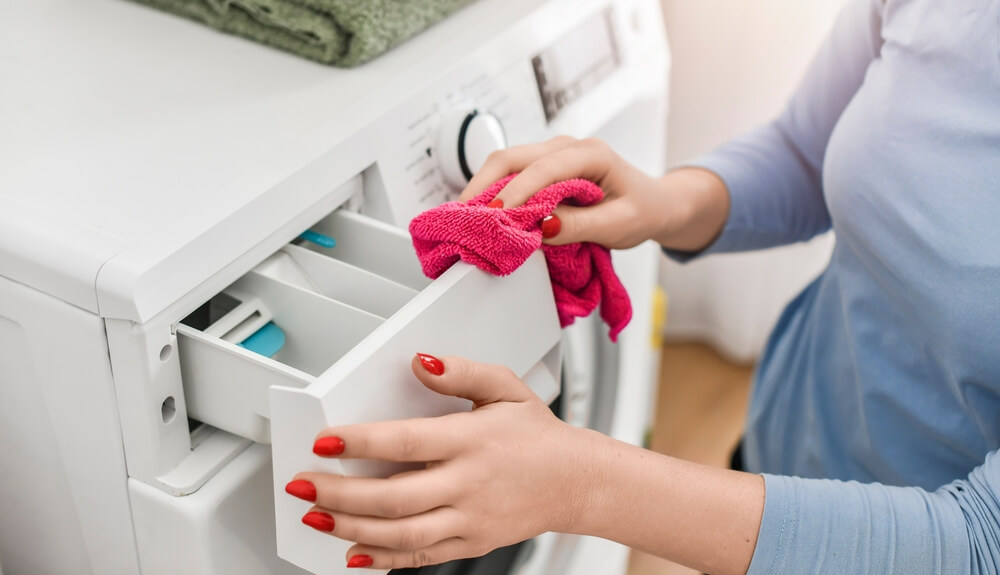
How Long Do Washing Machines Last?
The average lifespan of a washing machine typically ranges from 7 to 13 years, depending on the manufacturer, model, and usage.
What factors affect the lifespan of a washing machine?
There are numerous factors that can affect the health and lifespan of your washing machine. To ensure you get the most out of your appliance, it’s important to take good care of it – see our washing machine tips infographic to improve how you approach laundry day.
Some key considerations for maintaining your washing machine include:
Usage and load
Using your machine incorrectly, such as washing shoes improperly, can damage your appliance. It’s important to carefully follow washing label instructions and refer to your appliance manual to ensure effective cleaning of your clothing and the safety of your machine. Balancing your wash loads, avoiding regular overloading of your drum, and selecting the appropriate cycle for the type of laundry can all contribute to keeping your appliance running smoothly for longer.

Maintenance and care
Regular maintenance and care are essential for the longevity of any appliance, including your washing machine. Checking your filters and drum for debris and dirt can keep it from smelling, as well as preventing anything from blocking or damaging your washing machine. Cleaning your machine once a month is recommended to maintain its performance, ensure everything is functioning correctly, and prevent the buildup of unpleasant smells.
How to extend your washing machine’s life
Extending the longevity of your appliances can save you time, money, and the inconvenience of replacing them. Proper maintenance and cleaning can help a washing machine last longer and improve its efficiency. Regular maintenance checks and cleaning routines are also essential to increase the lifespan of a washing machine, while you should always ensure you load the appliance effectively.
To make your washing machine last longer, it’s helpful to know a few tips and tricks. Here are some things to keep in mind:
Proper usage and loading
To get the most out of your washing machine, proper loading is important. To avoid overfilling your drum, place your hand above the clothing. If you can comfortably rotate your hand, your machine isn’t overfilled. If not, reduce the load size. Overfilling the drum regularly can lead to wear and tear, shortening your appliance’s lifespan.
Regular maintenance and cleaning
You should clean your machine once a month to ensure proper appliance care. Regularly check your filter, drum, door seal, and detergent drawers for buildup, debris, and dirt. This routine maintenance can help keep your machine running smoothly for longer and eliminate any odours that may develop in the drum, resulting in fresher-smelling clothes.
Learn more about keeping your washing machine clean.
Address minor issues promptly
If you notice an issue with your appliance, it’s important to investigate and address it quickly. By keeping on top of minor issues with your washing machine, you can prevent larger and more series problems from arising. Replacing worn-down or broken parts promptly helps to prevent additional damage to your appliance. If you’re experiencing issues with your washing machine and are unsure of the cause, don’t hesitate to contact one of our customer care team for a professional opinion.
Signs your washing machine needs replacing
It is never convenient for your washing machine to need replacing, but it does happen. Knowing the signs to look out for that mean your washing machine should be replaced can ensure your clothes are cleaned effectively and safely. Whether your washing machine keeps leaking water or fails to clean your clothes adequately, replacing it at the end of its lifespan is a must.
Some indicators your washing machine might need replacing include:
Excessive noise or vibration
Excessive noise or vibration from your washing machine can be annoying, but it can also indicate that your appliance needs replacing. There are plenty of reasons why your machine might be making noise or moving excessively, so it is important to understand why your washing machine is making noise in the first place.
One common cause of excessive vibrations is that the transit bolts or the poly block have not been removed. This can cause vibration or ‘squeaking’ from the drum as they prevent the drum from moving freely, which can lead to significant vibration and noise issues. Always ensure the transit bolts are removed according to the manufacturer's instructions to avoid such problems. View our, how to remove transit bolts and the poly block from your machine, for more information.
If the transit bolts and poly block are removed and your machine is old, it could mean it is time for a replacement.
Leaks or water overflow
Finding water pooling below or behind your washing machine is an indicator that something is wrong. You should check your wastewater and water inlets for any damage to specific parts of your washing machine. If these components are damaged, you may need to replace them. However, experiencing excessive leaks or water overflow, especially if you and an expert cannot identify the problem, might mean it’s time to replace your washing machine.

Inefficient cleaning or cycle issues
No one wants their laundry to come out still dirty, and if your washing machine isn’t cleaning your clothes properly, it’s time for a new appliance. Whether your clothes are coming out with a persistent smell despite cleaning efforts or remain dirty after a wash cycle, dealing with poor cleaning power is frustrating. Purchasing a new washing machine can ensure your clothes are cleaned efficiently.
Replace your old washing machine with a Beko
If your washing machine is showing signs of reduced efficiency or isn’t working properly, it may be time to consider replacing it.
You deserve the best cleaning power from your washing machine, so don’t settle for your laundry needing multiple cycles to get the job done. Upgrading to a new machine can provide the enhanced cleaning performance your family’s laundry needs. Plus, newer models often come with advanced programmes that can optimise your cleaning routine.
Explore Beko’s impressive range of washing machines, including both freestanding and integrated models in a variety of colours, sizes and capacities. Our appliances are packed with advanced technologies too, like AquaTech®, for gentler washes, and EnergySpin, which saves up to 35% energy on everyday wash programmes.
Don’t worry if you’re not sure which model is right for you, our comprehensive washing machine buying guide is filled with tips to help you make the right purchasing choice.









